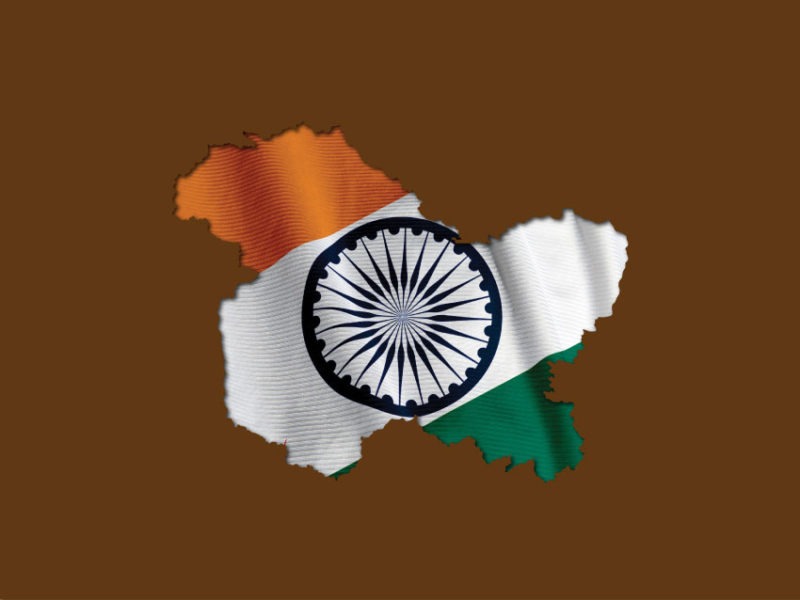Jammu & Kashmir Fully Integrated into India – Modi’s Stunning 370 Masterstroke
History was scripted on August 5, 2019 when the mandate-rich Narendra Modi Government fulfilled a long cherished dream of India, including Kashmiri Pandits, who were driven out of their homeland of more than 10,000 years in early 1990, the center ruling Bharatiya Janata Party (BJP) and its ideological parent organization, Rashtriya Swayamsewak Sangh (RSS), by abrogating the controversial Article 370, and bifurcating the state of Jammu & Kashmir (J&K), a focal point of many disturbances in past 70 years, into two Union Territories (UTs), namely Jammu & Kashmir, and, Ladakh.
Interestingly, Article 370 that had accorded an autonomous status to the erstwhile state was rendered ineffective, thereby finalizing its total integration to the Union of India, via a Presidential order that derived its powers from clause 3 of the same article.
The proviso that mandates the President to obtain recommendations of Constituent Assembly of the state, were argued by the center, as not necessary in the context of a dissolved assembly and the imposition of President’s rule in the state which automatically transferred those rights to the President, and which have had historical precedence, as in 1952 when the former Maharaja of Jammu & Kashmir was replaced by the Sadr-e-Riyasat in 1952.
And, with the backing of regional parties such as Aam Aadmi Party and Bahujan Samaj Party, the numerical strength of BJP led NDA overcame every pressure possible from the concerned state’s political parties, People’s Democratic Party and National Conference, and the principle national opposition party, Congress.
Allaying conjectures over the outstanding nature of the issue i.e. Kashmir being designated as a disputed territory between India and Pakistan, in consonance with the oft repeated Indian stance, and the 1994 Indian Parliamentary declaration, Home Minister, Amit Shah, categorically stated that the government views only Pakistan-occupied Kashmir as an issue of contention, and affirmed India’s commitment in not yielding an inch of Pakistan held Kashmir or for that matter Aksai Chin that was also illegally taken over by Pakistan and later gifted to China.
It merits one’s appreciation to understand that former Prime Minister of India, Jawaharlal Nehru’s blunders in handling accession of J&K and ratification of Article 370, despite strong reservations by both Sardar Vallabhbhai Patel, who had smoothly managed integration of 535 princely states, and BR Ambedkar, the framer of India’s Constitution, may be seen as rectified, albeit after a delay of 70 years, by this one move.
As regards the issue of Nehru seeking United Nations’ intervention that laid down prerequisites; complete demilitarization of occupied Kashmir by Pakistan prior to India holding referendum in J&K, neither have they been followed, and were nullified by the Simla Agreement that ruled out any third-party intervention.
On practical terms UN resolutions are no more applicable in the region allowing the Indian government to focus on going the whole hog in building everlasting emotional and development bonds with the citizens of UTs, as well as securing it from an envious, mischievous neighbor that has bared its ill intentions towards India, along with managing imperatives of jihadi elements moving towards India’s international borders once US troops evacuate Afghanistan.
New Delhi has its hands as it embarks on a new chapter, after it successfully passed key bills pertaining to J&K, honoring the courageous call for “one constitution and one flag for the whole nation” by martyred ideologue Shyama Prasad Mukherji at Srinagar, but with the sad news of the demise of veteran BJP stalwart, former External Affairs and one of the most loved states persons of India, Sushma Swaraj, who breathed her last just a few hours after she had tweeted, “I was waiting to see this (complete integration of J&K) in my lifetime” to the PM.
For now the Buddhist Ladakhis are more than excited to earn their long standing demand for a UT with the framework of politics and economics of their choice, free from the clutches of corrupt and communal authority of Kashmiri politicians, and in another decade or two it will be amply clear how well life, economics and politics of Jammu & Kashmir have been rebooted with this landmark move.


